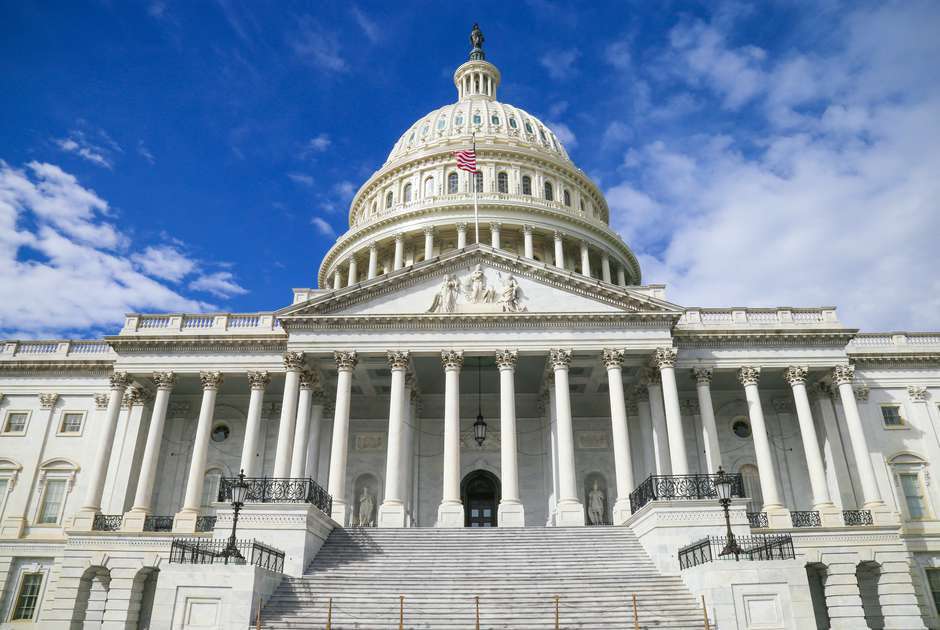Contrary to the widespread belief that many or most citizens reward elected officials for their shows of opposition to political foes, new evidence suggests that Americans still prefer representation by leaders they believe share their policy views and are responsive to their constituents.
Contrary to the widespread belief that most citizens reward elected officials for their shows of opposition to political foes, new evidence suggests that Americans instead prefer representation by leaders they believe share their policy views and are responsive to their constituents.
According to an article published in the American Journal of Political Science in November, data from a series of experiments designed by author Mia Costa, an assistant professor of government at Dartmouth University, showed that legislators who engage in “negative partisanship” — referring to hostile, nonsubstantive rhetoric about an opposing party or to statements emphasizing the importance of electoral or policy defeats of a politician’s partisan opponents — are not rewarded with higher evaluations from citizens.
In most cases, Costa’s research found, the tactic actually hurts those lawmakers in the eyes of the public.
Costa claimed that in the end, “people still want representation based on issues, not partisan affect.” Her findings could be a hopeful sign for democracy in the U.S., and a wake-up call for politicians who think exploiting partisan animosity is a potent political strategy.
To tease out individuals’ preferences along several different dimensions, Costa devised three studies in order to examine the relative impacts of issue representation, responsiveness to constituent mail and expressions of partisan affect on the way they evaluated hypothetical legislators.
The studies yielded surprising results. The first revealed that respondents strongly preferred representatives who align with their policy views over those who voice animosity toward the opposing political party. In fact, the research shows, the respondents disliked negative partisanship just as much as they disliked policy views out of step with their own or poor constituency service, which Costa defined as responsiveness to constituent concerns.
The second phase, which focused on whether primary voters in particular reward negative partisanship, showed that even the most loyal party backers are turned off by such partisanship.
A third study found that respondents prize policy alignment above other considerations, and that they tended to favor positive expressions of in-party “cheerleading” over rhetoric aimed against the opposing party.
“In sum,” the paper concluded, “citizens penalize representatives for negative partisanship compared to substantive representation.”
Costa, an expert on representation, public opinion and participation in American politics, said her research was inspired partly by reflecting on pessimistic attitudes gaining increasing traction in academia, the media and at the kitchen table.
“The motivation for this particular paper started with the observation that a lot of scholars, but also pundits, and your uncle at Thanksgiving, and a lot of [other] people right now have this idea that politics is completely broken because of partisanship and polarization,” she said.
The polarized political atmosphere is very real, Costa acknowledged, pointing to evidence that neither politicians nor voters want to compromise on their policy positions largely due to partisanship and the ways it distorts certain political behavior.
But while that evidence gives cause for concern about American democracy, Costa said, her findings should temper the gloom. That’s because voters don’t want representation focused around polarization when it comes at the expense of policy representation or serving constituents well, according to the article.
Reconciling that conclusion with the nastiness that permeates today’s political arena isn’t impossible, according to Costa. While it’s true that many citizens are strongly polarized against their perceived partisan enemies, that polarization boils down to securing their preferred policies from representatives who serve them and their priorities effectively.
“The reasons we’re divided are intimately related to the things that we care about in terms of policy and in terms of the connections we can make with our legislators through constituency service,” Costa said.
It could also be that what citizens want out of political representation is fundamentally different from what they want in other social interactions.
“The people we want to engage with in our daily lives might be totally different from what we want to see from our politicians,” Costa said.
To combat mounting hostility in contemporary political discourse, she added, politicians must be willing to update their beliefs about which rhetorical styles work, and which don’t.
“At the end of the day, politicians are really misinformed about what they think their constituents want,” Costa said. “Politicians have to lead by example, and they have to model different behavior and a different type of politics, and a lot of them right now don’t have the courage to do it.”
The article, “Ideology, Not Affect: What Americans Want from Political Representation,” was published on Nov. 10 in the American Journal of Political Science and authored by Mia Costa, Dartmouth University.

gwarrior5 on January 7th, 2021 at 13:40 UTC »
And yet they still get voted in.
cC2Panda on January 7th, 2021 at 13:30 UTC »
I'd have to dig for old studies, but I remember a study that came out more than a decade ago that showed excessively negative campaigns reduced voter turn out but mobilized the extremes. Essentially if undecided and centrists didn't like either candidate because the campaigns they were less likely to vote. Where this is a major problem now is primaries, because the more extreme candidates have a valuable tactic in starting a mudslinging war.
0xD153A53 on January 7th, 2021 at 12:22 UTC »
...and yet those representatives get re-elected.
Is it just a matter of not wanting to hear the baseless rhetoric, but reap the benefits of the equally baseless policies?